Why the "Desert Fox" could not break through to Alexandria
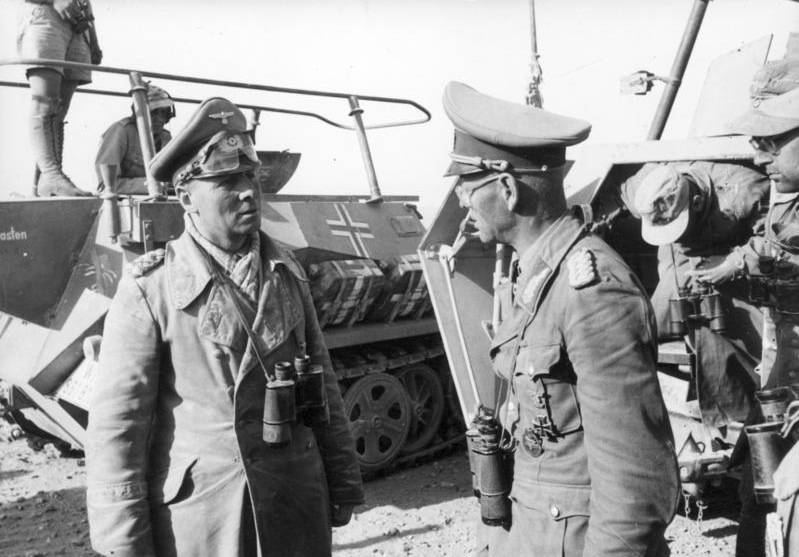
Situation at the front
In May-June 1942, Rommel defeated the British troops at the Battle of Gazala (How Rommel defeated the British 8th Army and took Tobruk). German-Italian troops broke through the Gazala line, took Tobruk on June 21 and advanced about 600 km. German tanks were on the outskirts of El Alamein - the last line of enemy defense on the way to the Nile Delta and the Suez Canal. The British army lost 80 thousand people, mostly prisoners, most of the armored vehicles.
The situation for Britain was threatening. There was a risk of losing Egypt, Suez, the main communication between England and India, the Far East. Here military materials went to Africa, to the Far East and to Russia (through Iran). Oil from Iran and Iraq was needed to continue the war. In addition, the Wehrmacht broke through to the Caucasus. There was an opportunity to unite the German Caucasian and African groups. This could lead to the collapse of the British Empire. That is, if Hitler really wanted to defeat England, then he only needed to give a few divisions and additional Luftwaffe forces to Rommel. The Nazis could take Suez, then Malta and take Gibraltar. Create a threat to the enemy in Palestine, Syria, Iraq and Iran. After that, London would have to beg Berlin for peace.
The British themselves were in the face of complete defeat and were ready for further retreat. Trenches were hastily dug near Alexandria and Cairo. Bridges were built across the Nile, headquarters, government agencies and supplies were evacuated from the west bank. Headquarters of the British Mediterranean fleet moved from Alexandria to Ismailia. The ships went to bases in Haifa, Port Said and Beirut. In Alexandria, they were preparing to destroy the port during the retreat. There were plans to flood the entire Nile Delta.
The exit of the Germans to El Alamein
Rommel wanted to finish off the 8th British Army and take the Nile Delta up to the Suez Canal. He urged his command to continue the operation until the enemy came to his senses, not to pause. He informed the German military attache in Italy, General von Rintelen, that the booty captured in Tobruk, especially fuel, would be enough for his army for three months of war. Rommel also met with the commander-in-chief of the German troops in the Mediterranean theater and in North Africa, Field Marshal aviation Kesselring, who arrived in Tobruk. The field marshal noted that the Luftwaffe would not be able to support the offensive. Rommel declared that there might not be a second such opportunity to throw the enemy into the sea. In the end, Kesselring agreed. Hitler also supported Rommel and convinced Mussolini, although the Italian generals, as before, expressed doubts.
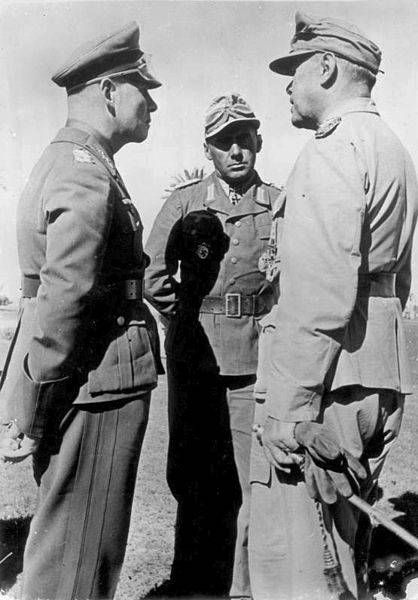
On June 22, 1942, Rommel ordered the Afrika Korps to continue the offensive. In the evening, the 15th and 21st Panzer Divisions began to move, intending to outflank the enemy from the south. Despite the opposition of the British Air Force, the tanks of General Walter Nering entered Egyptian territory on June 23. The commander of the 8th Army, Neil Ritchie, orders the troops to withdraw to Mersa Matruh. The port of Sidi Barrani was destroyed and abandoned on 24 June. However, the pace of movement of the German-Italian troops fell. The infantry was tired. The British mined all coastal roads. British aviation was active. Only on the evening of June 25 did the Germans reach Mersa Matruh.
On June 25, Auchinleck, Commander-in-Chief of British Forces in the Middle East, relieved Ritchie of his post and took charge of the 8th Army himself. He planned to hold the last line at El Alamein at any cost. The 10th Corps of General Holm (10th and 50th Infantry Divisions, 151st Brigade), which had just arrived from Syria, took up advanced positions near Mersa Matruh. On the southern flank was the 13th Corps - the 1st Armored and New Zealand Infantry Divisions, the 3rd and 7th Armored Brigades, the remnants of the 7th Armored Division. In the second line at El Alamein, the 30th Corps was located - the 1st South African Infantry and the 9th Australian Division (it was hastily formed in Palestine), the French brigade.
On June 26, the Germans broke through the British front between the 10th and 13th corps. At the junction of the two British corps, the 1st Armored Division was supposed to hold the defense, but it was not there. The British fell back to the El Alamein line. On June 28, the Germans almost surrounded the 10th Corps. The advancing German and retreating British columns mixed up. British aircraft bombed their own. The Germans fired at each other. The 10th Corps escaped the “cauldron”, but lost 6 thousand prisoners, 40 tanks and a large amount of equipment and weapons. On June 29, the Italian 21st Corps accepted the surrender of the British garrison of Mersa Matruh. 6 thousand soldiers surrendered, a large number of trophies were captured.
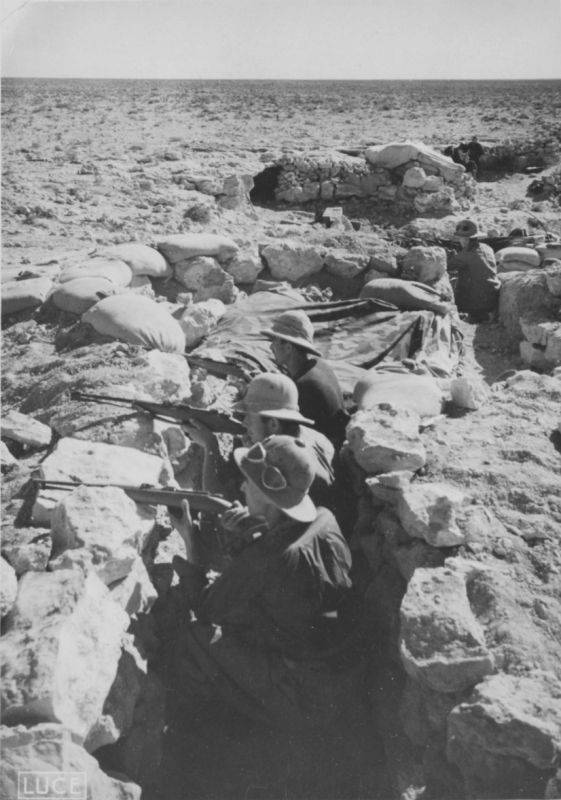
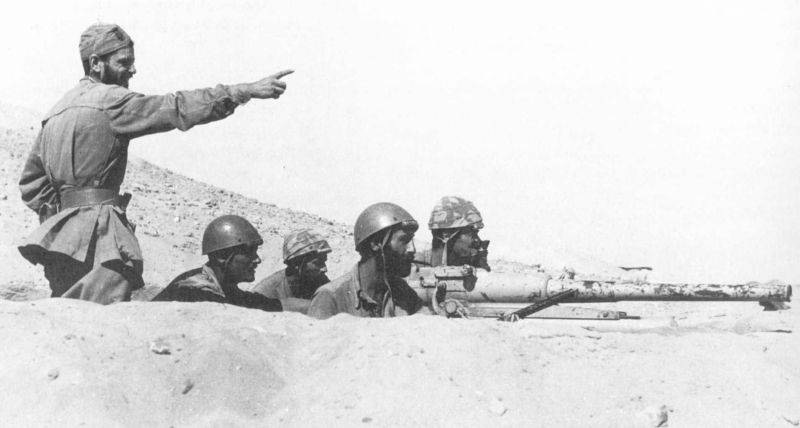
Line of defense at El Alamein
The line of El Alamein was convenient for defense: about 60 km from the coast to the cliffs of the waterless basin of Qattara. This reduced the front line and excluded the possibility of a breakthrough of the enemy's mobile forces on the southern flank. The depression was covered with salt marshes and quicksand, and was impassable for troops. However, there were few fortifications. There were only three strong points ("boxes"). In the north, the "box" was located at El Alamein on the coastal highway and railroad. The city itself was fortified like Tobruk, but weaker. The second well-fortified "box" was in the center, at Bad el-Kattara, the third was at the depression, at Abu Dweis, controlling the local road.
In late June 1942, the heavily battered 1st South African Division (30th Corps) occupied El Alamein. The 18th Indian Brigade, fresh from Iraq, took up a new stronghold at Deir el Shein, between El Alamein and Bad el Qattara. Two New Zealand brigades were in the second line. The 9th Indian Brigade defended the southern sector. Then the southern flank was covered by the 13th Corps - the New Zealand Division, the 5th Indian Division. Auchinleck, following the example of the German battle groups, formed two mobile groups of infantry and artillery. They were formed from South African units and were based in the desert north of the Rumeisat range. Artillery was reorganized along the lines of the enemy. The 4th Armored Brigade was formed, followed by the 1st Armored Division (150 tanks). The bloodless 10th Corps (10th Indian Division, French brigade, Polish, Greek and other units, units) defended the Nile Delta.
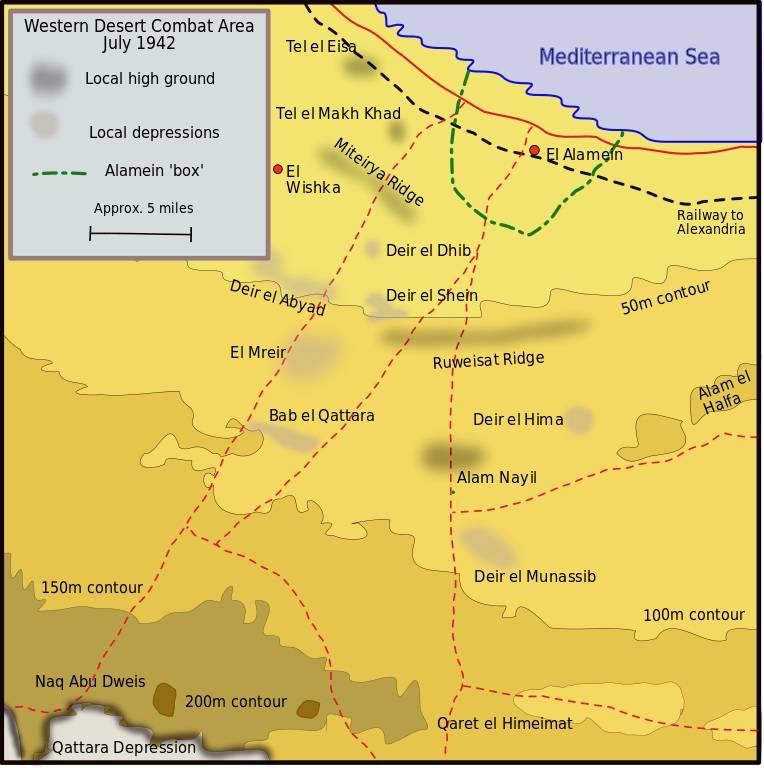
The advance of the German Army of Africa
The tank army "Africa" was exhausted by previous successes: the infantry was drained of blood and tired, only 90 tanks remained (a third were Italian). Stocks are running out, used warehouses and trophies abandoned by the British. We advanced on trophy vehicles. However, Rommel believed that the enemy was completely drained of blood and demoralized, it was necessary to press again, and the front would finally collapse. The commander was going to repeat the maneuver at Mersa Matruh: the Afrika Korps and the 90th division would strike at the junction of the fortifications of El Alamein and Deir el Shein. After the breakthrough, the 90th Division would turn north towards the coast, and the Afrika Korps south to outflank the enemy's center and left flank. The Italians settled at El Alamein. In the very south, the Italian 20th Motorized Corps was to attack the "box" at Bad el Qattara.
In the early morning of June 30, 1942, the Germans attacked. On the right flank, the German Afrika Korps ran into the defense of the "box" of Deir el-Shein - the 18th Indian brigade and the South African battle group. On the left flank, the 90th Division, under the cover of a sandstorm, first successfully penetrated the enemy defenses, then came under artillery fire and went on the defensive. In addition, British aviation was active.
Auchinleck planned a counterattack with the mobile forces of the 13th Corps, while the troops of the 30th Corps held the line, pinning down the enemy. An offensive to bypass the enemy in the south was planned for July 2. But the Germans were ahead of the enemy. General Clément's 90th Light Division attacked again, but made little progress. The division was completely bled, having lost its strike force. British tanks launched a frontal attack on the German corps, but without success. In general, Rommel's army lost a large amount of manpower and equipment. The soldiers were exhausted to the limit. British aircraft dominated the air, destroying enemy communications.
On July 3, Rommel again threw his exhausted troops into the attack. The Germans advanced slightly and were 60 km from Alexandria. Further advance was stopped by British artillery and aircraft. In the south, the attack of the Italian corps was also repelled. The Ariete division was hit by the British and lost almost all of its artillery and tanks. Rommel took a break, the army dug in in its positions. The 90th division, advanced forward, was pulled back. The German commander was waiting for the arrival of reinforcements coming from Tripoli, including 350 tanks. They also tried to arrange supplies.
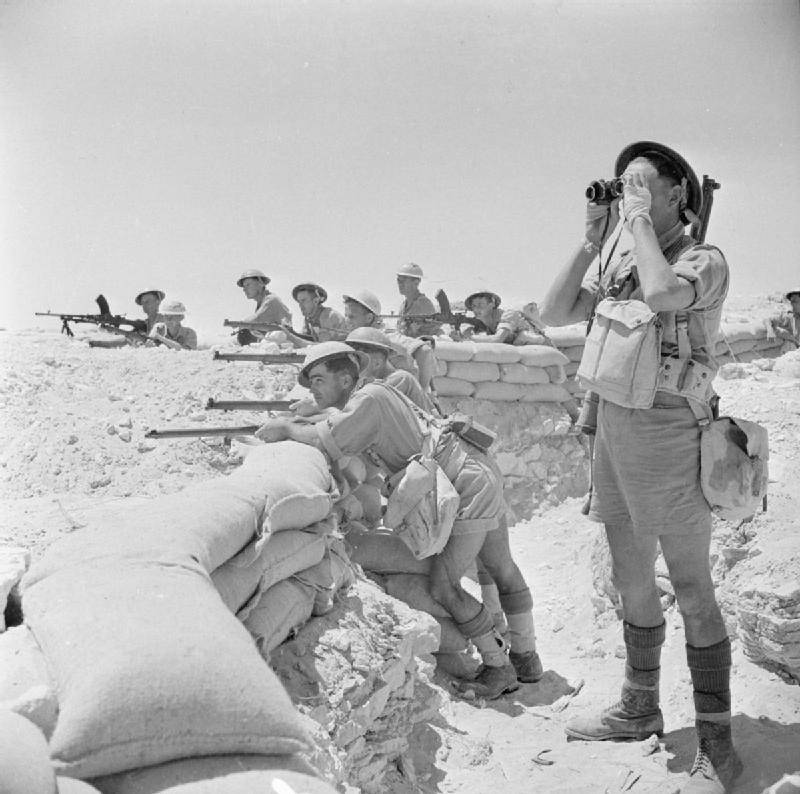
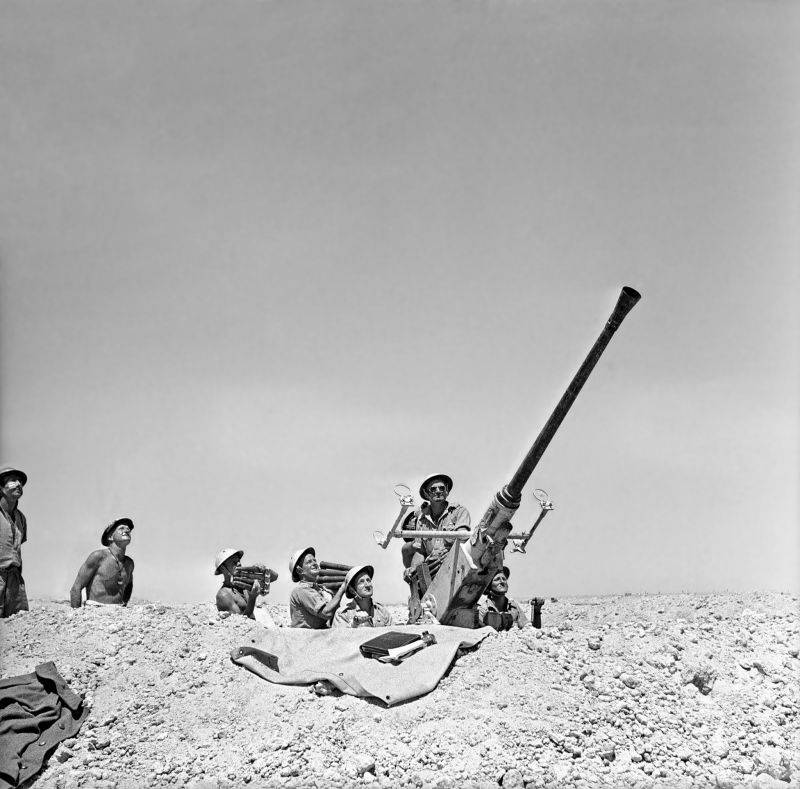
British army counterattacks
Auchinleck tried to strike back, to push the enemy back to their original positions. The 13th Corps and armored brigades targeted el Ghazala to encircle Rommel's army. The operation began on July 5, but the British were unable to make a deep breakthrough, only pushed the enemy back.
On the night of July 9-10, the British carried out a powerful artillery preparation. The 10th Australian Division then attacked the Italian positions at El Alamein. The Italian 60th Infantry Division "Sabrata" could not withstand the onslaught and retreated. The British tried to develop the offensive. The Germans had to close the breakthrough with staff officers, anti-aircraft gunners, signalmen and other rear services. Rommel had to abandon plans for his own attack and send part of the 15th Panzer Division to the dangerous sector. The gust was eliminated, but the southern flank of the African army was weakened.
On July 13, the 21st Panzer Division, supported by bombers, attacked El Alamein, but the attack bogged down. The division commander, von Bismarck, withdrew the troops to their original positions. On the night of 13/14 July, the British struck with forces of New Zealanders and Indians. The Italian infantry divisions Brescia and Pavia (20th Corps) fought hard and were defeated. At the same time, the British attacked in the south in the "box" of Deir el-Shein. The German 21st Division repelled the blow. On July 16, the Australians again attacked on the coastal flank; on July 17, the Italian motorized divisions "Trieste" and "Trento" were defeated. Rommel again throws his units into the dangerous area to stop the British.
Rommel wrote:
The commander of the "Africa" army invites Kesselring, the chief of the Italian General Staff, Cavaliero, and the commander of the Italian forces in Africa, Bastiko, to withdraw to the Es Sollum line. Kesselring opposed. The Italians promised reinforcements.
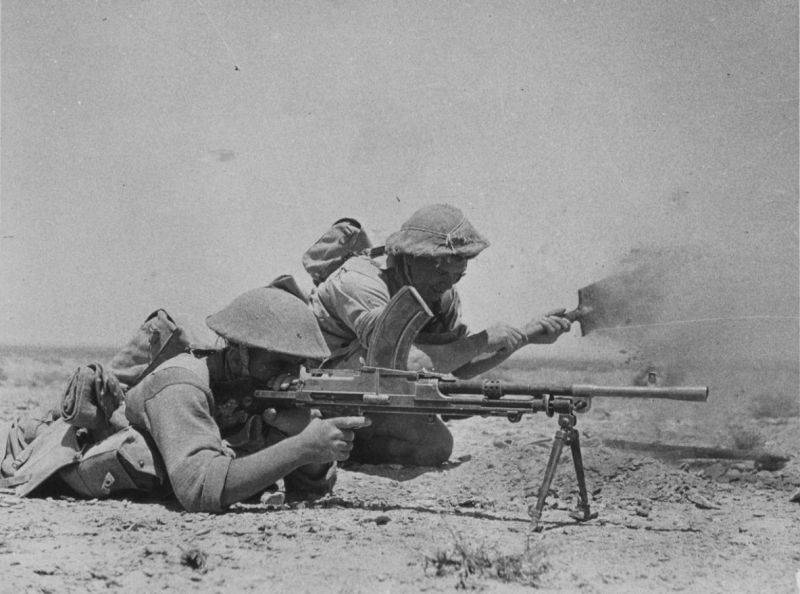
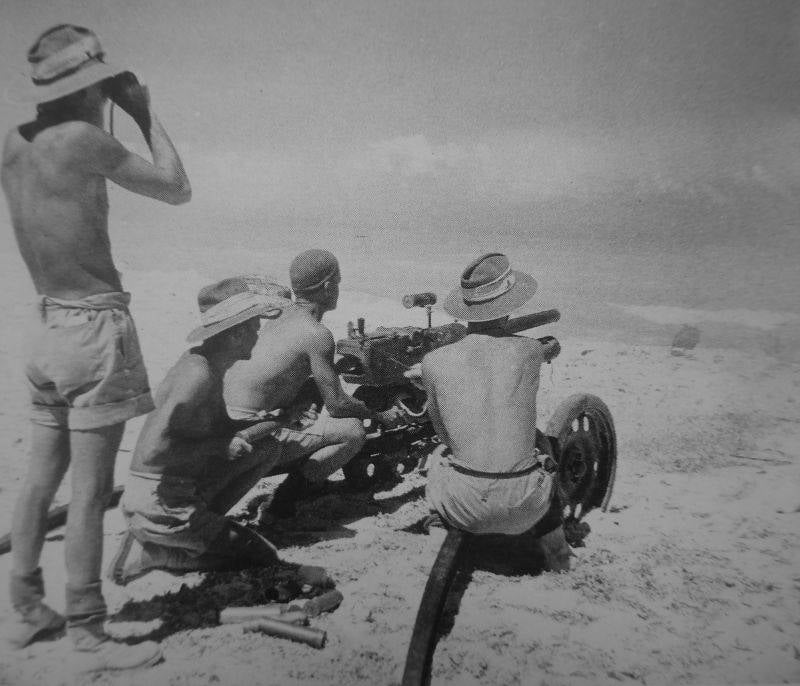
The British are preparing a new operation in the center, after breaking through the enemy defenses, a detour maneuver was planned to the northwest in order to block the shock forces of Rommel's army. On July 21, after heavy artillery preparation and air strikes, the 13th Corps went on the offensive. On June 22, the Afrika Korps counterattacked the enemy and defeated the New Zealanders. The Germans captured many prisoners, weapons and ammunition. The British 23rd Armored Brigade entered a minefield and were shot at by German anti-tank artillery. In two hours of battle, the brigade lost 85 tanks out of 97.
In another sector, the Australians, who were tired of being at the forefront of the attack, refused to go on the offensive. The Australians, supported by the 69th Brigade, did not attack until 26 July. However, on July 27, the Germans defeated the 69th brigade, and the 2nd armored brigade, which was supposed to support the attack, got lost. In the end, the British offensive failed. The British 8th Army was also exhausted and went on the defensive on 31 July.
Thus, the Germans were unable to finish off the enemy, although the moment was favorable. The main forces of the tank army were exhausted by previous battles, Rommel did not have reserves for the development of the offensive and a sufficient number of aircraft. Tanks after reaching El Alamein almost ended, unlike the British.
Berlin concentrated all its forces on the Russian front, troops in Africa were supported and supplied to a minimum. The previous shortcomings of the theater also affected: the lack of developed communications, the supply of mobile units that had pulled ahead was difficult. The planes had not yet had time to relocate to the captured airfields.
Therefore, the British commander-in-chief Auchinleck was able to stop the army from running along the El Alamein line. Fresh troops are moving in here. As a result, the British were able to gain a foothold and hold their positions at El Alamein. In turn, the attempts of the British to go on the counteroffensive were repelled with heavy losses for the 8th Army. Both sides lost 17-18 thousand people in the battle.
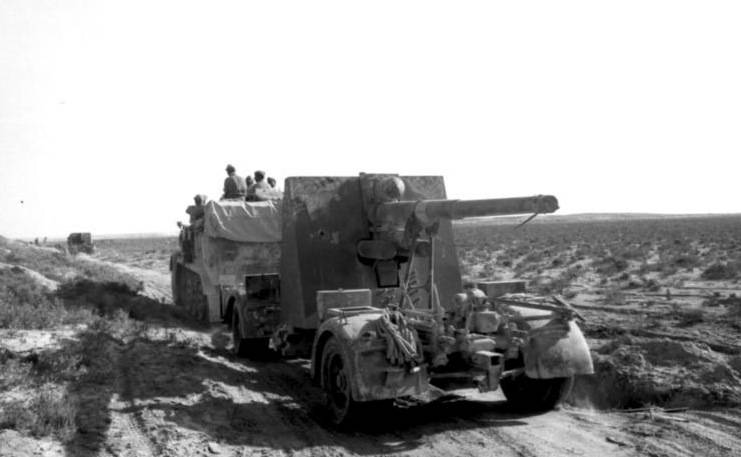
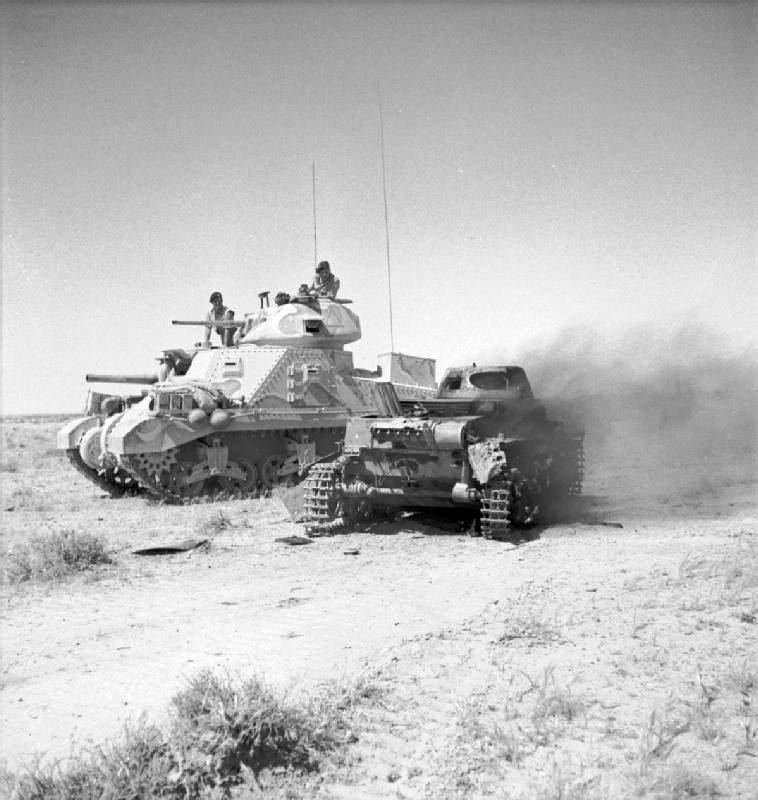
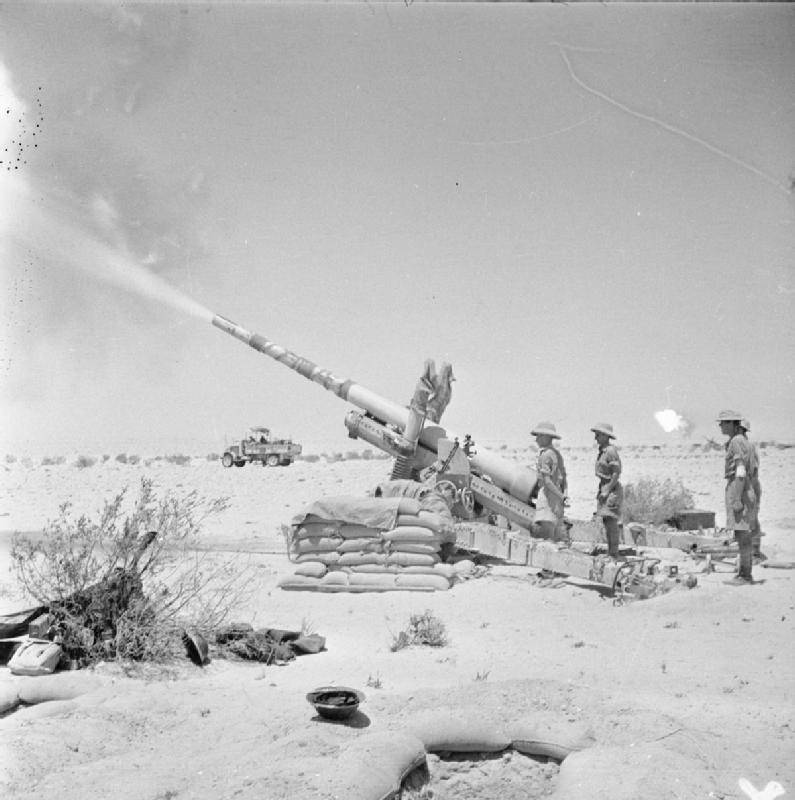

Information